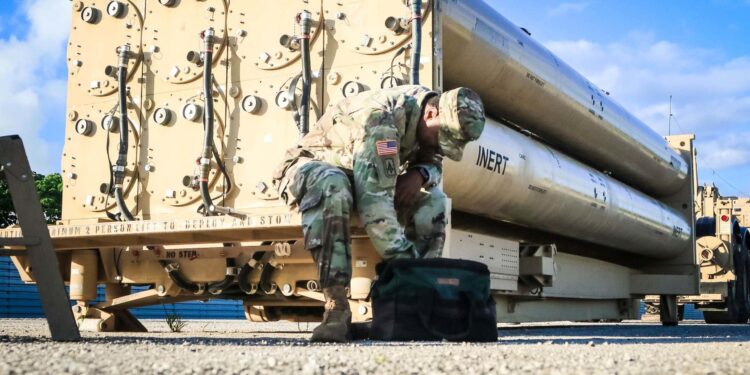The United States is set to deploy a Terminal High Altitude Area Defense (THAAD) battery to Israel, along with the necessary troops to operate it, according to a Pentagon announcement on Sunday. This move follows a warning from Iran, urging the U.S. to keep its military forces away from Israel.
Pentagon spokesperson Maj. Gen. Pat Ryder stated that Defense Secretary Lloyd Austin, under President Joe Biden’s directive, approved the deployment. The THAAD system aims to strengthen Israel’s air defense capabilities in response to Iranian ballistic missile strikes in April and October.
While the advanced missile defense system is intended to enhance security, its deployment could heighten tensions in the Middle East, despite diplomatic efforts to prevent a broader conflict. Iran’s warning was issued in a post on X, a platform often used by Foreign Minister Abbas Araghchi, referencing earlier reports about the U.S. considering such actions.
Meanwhile, clashes between Israeli forces and Hezbollah fighters in Lebanon have escalated since October 8, 2023, when Hezbollah began launching rockets over the border in support of Hamas in Gaza. Israel responded by initiating a ground invasion into Lebanon last month.
Israel is reportedly preparing a military response to Iran’s missile attack on October 1, during which approximately 180 missiles were fired into Israeli territory.
Speaking briefly to reporters before departing Florida on Sunday, President Biden confirmed his approval of the THAAD battery deployment “to defend Israel.” Biden made his remarks at MacDill Air Force Base in Tampa after visiting the site of Hurricane Milton’s destruction and meeting with first responders, residents, and local officials.
Pentagon spokesperson Maj. Gen. Pat Ryder reiterated that the deployment highlights the U.S.’s “ironclad commitment” to defending Israel and U.S. personnel in the region from further Iranian ballistic missile strikes.
Details about the source or timeline for the THAAD battery’s arrival remain unclear. Lt. Col. Nadav Shoshani, an Israeli army spokesperson, did not specify when the system would arrive but expressed Israel’s gratitude for U.S. support.
The U.S. had previously deployed a THAAD battery to the Middle East, along with additional Patriot battalions, to protect U.S. forces in the region following Hamas’ October 7, 2023, attack on Israel. Ryder also noted that the U.S. had sent a THAAD battery to Israel in 2019 for training purposes.
It is not uncommon for a limited number of U.S. troops to be stationed in Israel, a key regional ally. There has typically been a small, continuous presence of U.S. forces in Israel, along with periodic rotations for training exercises.
The THAAD system will bolster Israel’s already extensive air defense network, which includes systems capable of intercepting threats at various ranges. Israel recently decommissioned its U.S.-made Patriot missile systems after years of service.
According to an April report from the Congressional Research Service, the U.S. Army operates seven THAAD batteries, each comprising six truck-mounted launchers, 48 interceptors, radio and radar systems, and requiring 95 soldiers to operate. THAAD complements the Patriot system by providing a broader defense range, capable of neutralizing missile threats from 150 to 200 kilometers (93 to 124 miles), targeting short-, medium-, and limited intermediate-range ballistic missiles.
The system, developed by the U.S. Missile Defense Agency and operated by the Army, is expected to expand with an eighth unit next year, which has already been funded and ordered.












Discussion about this post